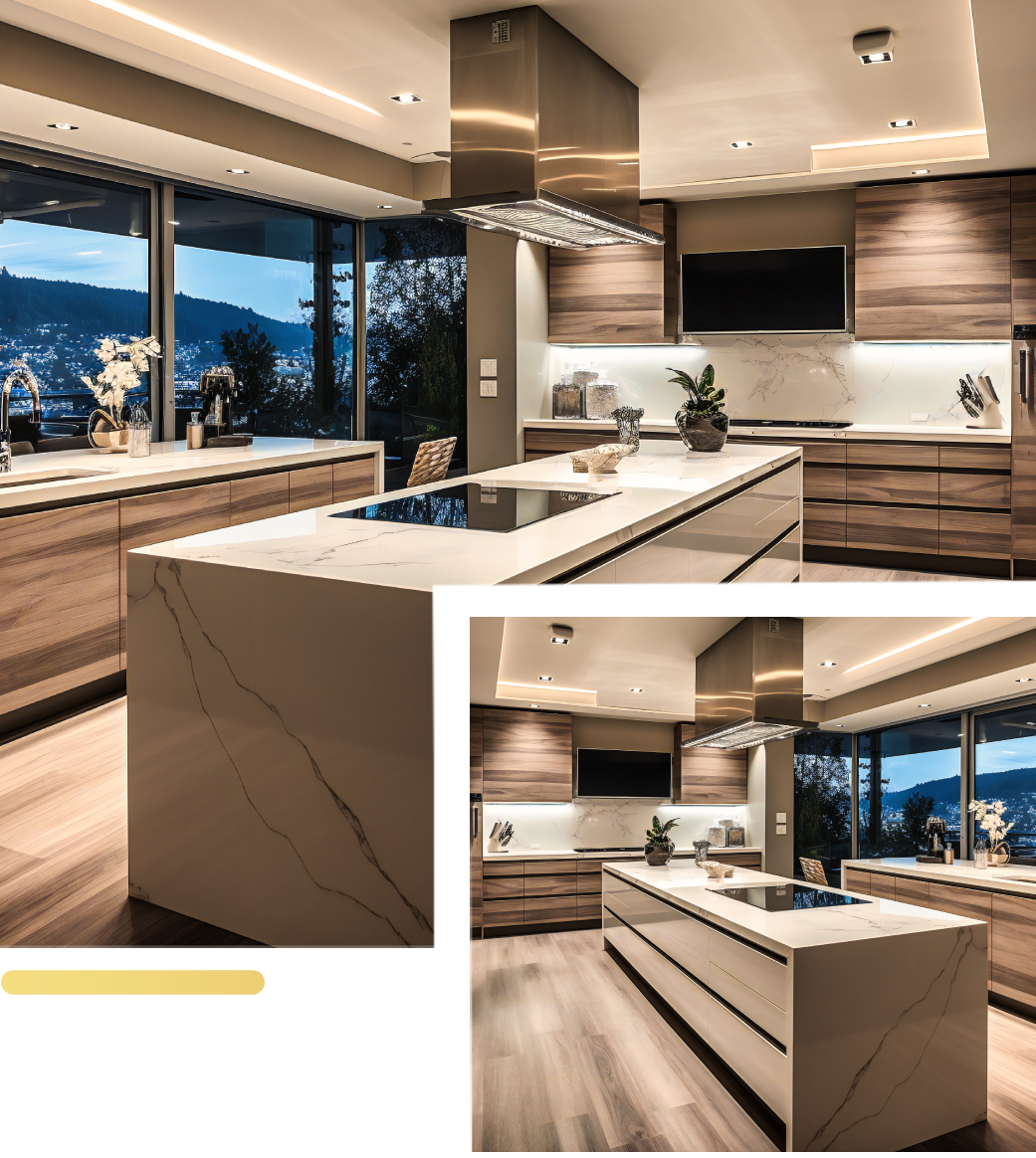About Quartzite Countertops
Quartzite countertops in Pensacola are an increasingly popular choice among home and business owners seeking to add a touch of natural elegance to their interiors.
The journey of quartzite begins as sandstone, a sedimentary rock composed primarily of sand-sized mineral particles or rock fragments. Over millions of years, the sandstone is subjected to extreme heat and intense pressure deep within the Earth's crust, causing the quartz grains in the sandstone to fuse.
What sets Pensacola quartzite apart from other contenders in the realm of natural stone countertops is its exceptional durability combined with a wide array of design options.
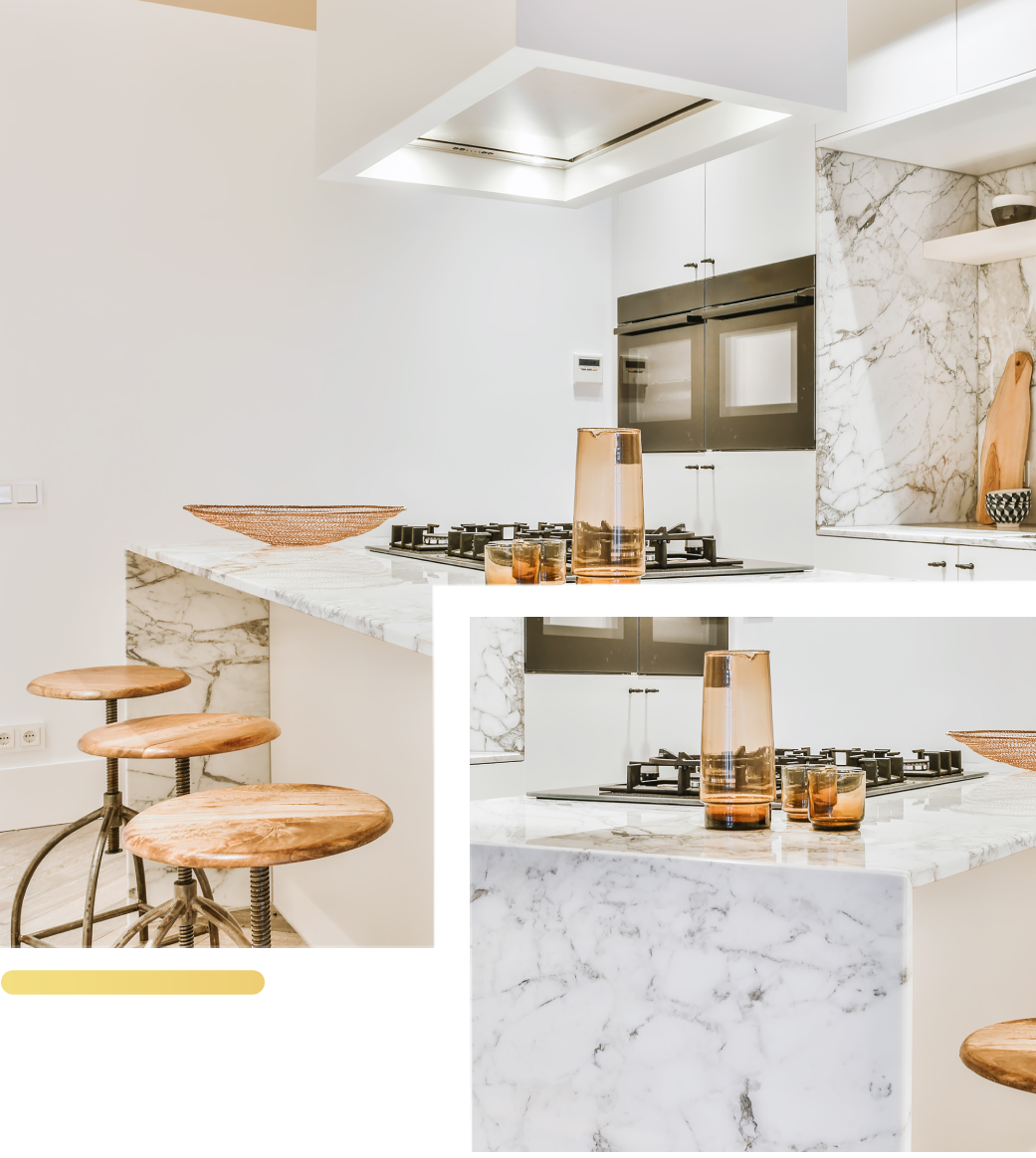
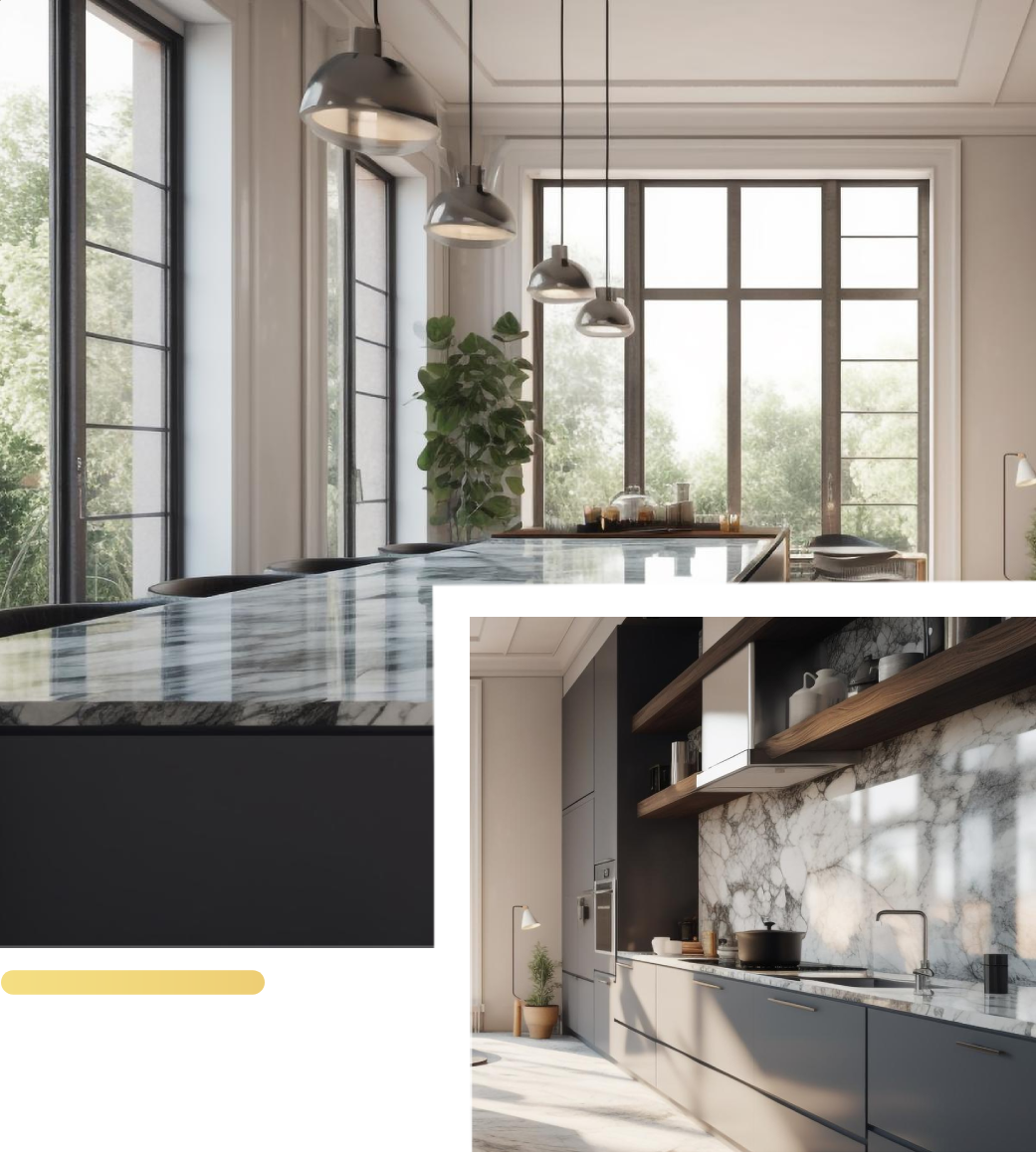
Benefits of Quartzite Countertops
Quartzite countertops combine functionality and elegance, making them an excellent choice for any space. Quartzite offers several compelling advantages:
Natural Beauty
Each slab of quartzite in Pensacola boasts unique patterns and veining, ensuring no two quartzite countertops are exactly alike. This uniqueness allows for a high degree of personalization in your design.
Durability
One of the primary benefits of quartzite is its exceptional durability. As one of the hardest natural stones, it's resistant to scratches and heat, making it perfect for high-traffic areas like the kitchen.
Added Value
Besides being practical and beautiful, quartzite countertops can also add value to your home, office, or commercial space. Their luxurious appeal and long lifespan can be a selling point if you ever decide to put your property on the market.
Low Maintenance
Quartzite countertops are relatively easy to care for. They don't require frequent sealing like some other natural stones, and routine cleaning is as simple as using mild soap and water.
Quartzite Countertop Colors
When it comes to color options, quartzite countertops in Pensacola truly shine. This natural stone presents a broad spectrum of hues, allowing you to find the perfect stone that suits your vision.
The beauty of quartzite lies not just in its colors but also in the unique patterns and veining that each slab possesses. These natural variations give quartzite countertops their distinctive character, ensuring your kitchen or bathroom has a one-of-a-kind appeal.
Whether you're after a light, dark, or mid-toned countertop, quartzite has you covered. The key is to choose a color that aligns with your overall design theme and personal preferences.
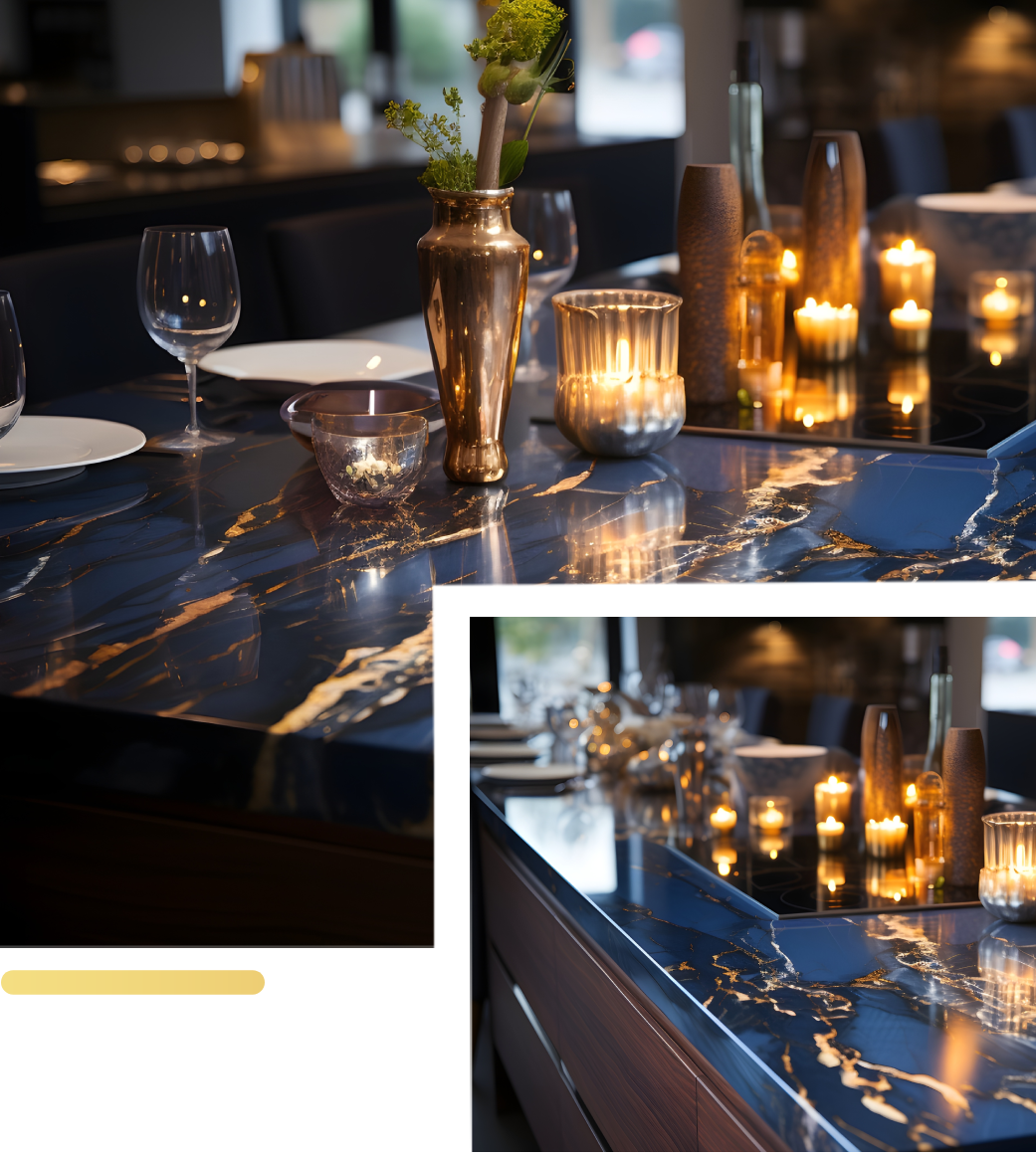
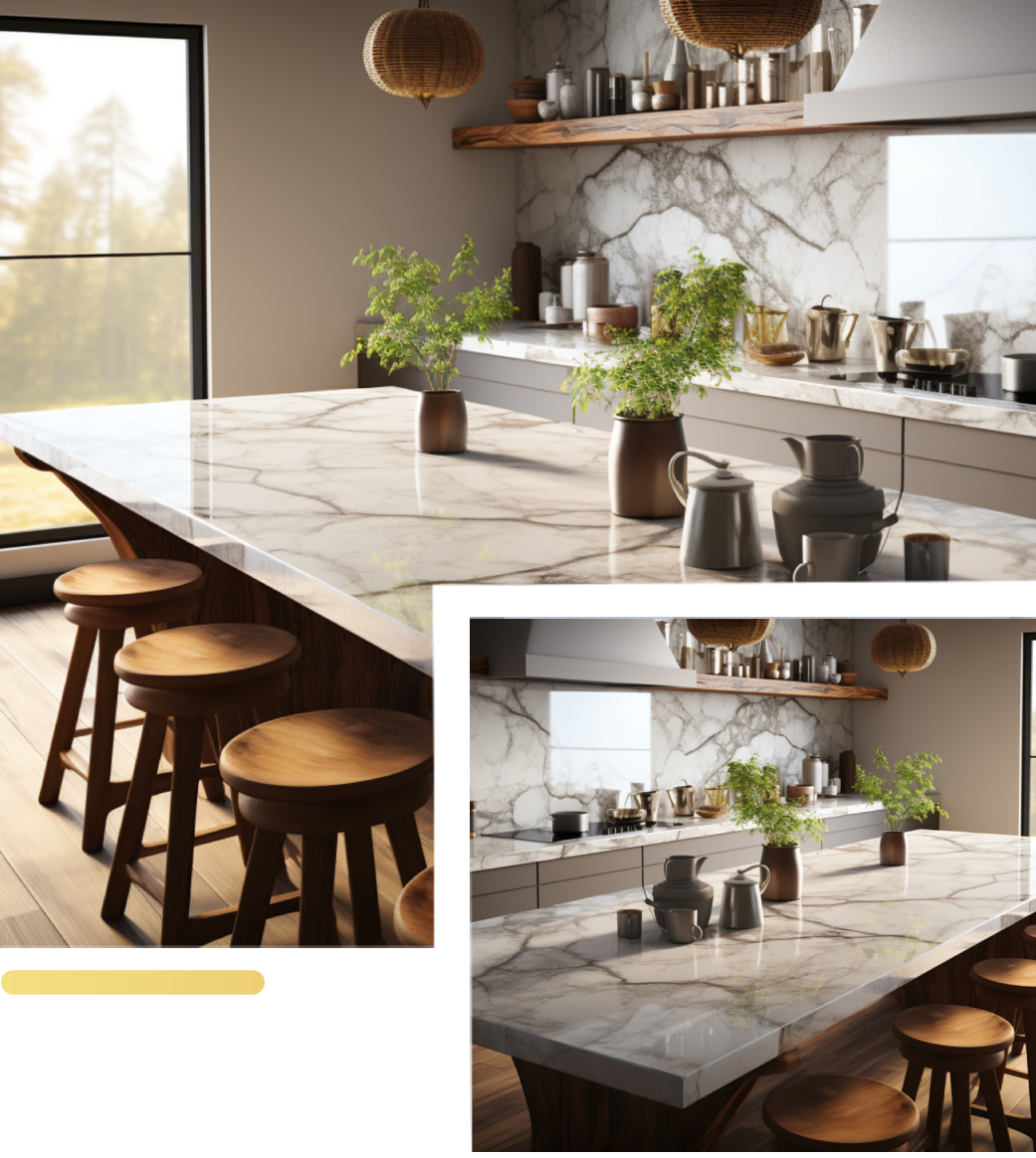
Kitchen Quartzite Countertops
The kitchen is often the heart of the home, a place where meals are prepared, families gather, and memories are made. Given its frequent use, it's essential to have durable surfaces that can withstand daily wear and tear. This is where quartzite countertops shine.
Their superior hardness and resistance to heat make them an ideal choice for a busy kitchen environment. Whether you're placing hot pots directly on the surface or using sharp knives for food preparation, quartzite countertops can handle it all without showing signs of damage or wear.
Quartzite countertops also add a touch of natural elegance to your kitchen. Their diverse range of colors and unique patterns can complement various kitchen styles, from modern minimalist to rustic farmhouse. Each slab of quartzite is unique, ensuring your kitchen has a distinctive look.
Bathroom Quartzite Countertops & Vanities
Quartzite in Pensacola, with its natural beauty and unique veining, adds an element of luxury and sophistication to bathroom spaces. Its vast color spectrum can match any interior design style, from classic to contemporary.
Whether you choose lighter hues for a serene and spa-like feel or darker tones for a striking and dramatic effect, quartzite brings a distinctive charm to your bathroom.
Functionality is equally important in bathroom spaces, and quartzite doesn't disappoint. Known for its durability and strength, quartzite is resistant to scratches and chips, making it an excellent choice for high-traffic bathrooms. Additionally, its heat resistance comes in handy when using hot styling tools around your vanity.
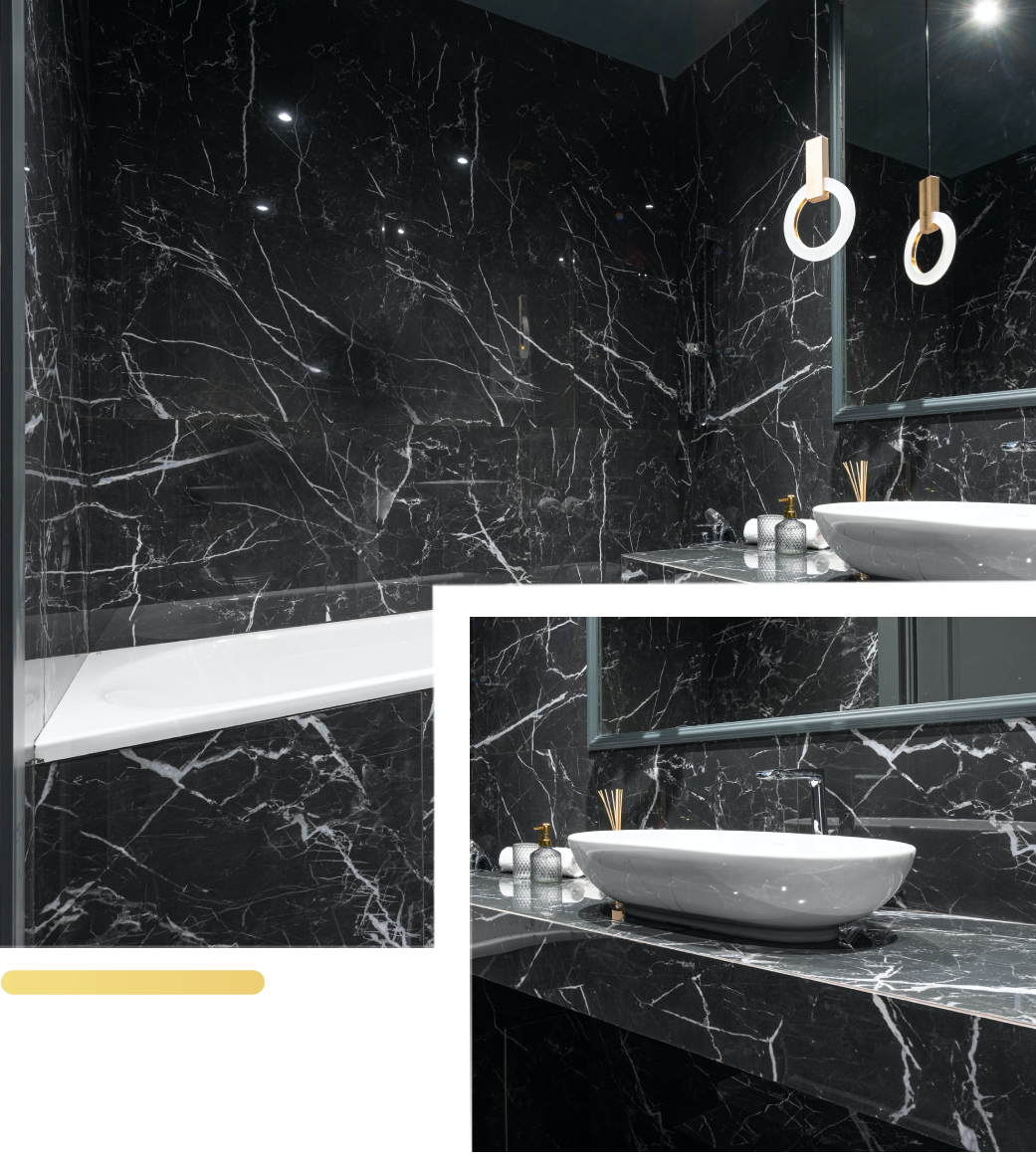
Frequently Asked Questions
Explore answers to some of our most frequently asked questions about quartzite countertops in Pensacola, FL.
Quartzite is a tough, heat-resistant natural stone formed from sandstone. It's prized for its durability and marble-like appearance. With various colors and veining patterns, it's a popular choice for countertops and more.
Unlike marble, it's less prone to staining and etching, though some types may benefit from occasional sealing. In short, quartzite combines beauty and toughness, making it a favored material in construction and design.
Cleaning quartzite countertops is easy. Use a mild cleanser mixed with warm water on a soft cloth or sponge. After cleaning, rinse with water and dry with a cloth to prevent water spots.
Avoid abrasive or acidic cleaners, as they can harm the surface. Promptly clean up spills to prevent staining. These simple steps will help maintain your quartzite countertops' pristine appearance.
Sealing quartzite countertops is indeed a task best entrusted to professionals with experience in natural stone care. By relying on a professional, you not only ensure the longevity and protection of your quartzite countertops but also avoid potential pitfalls that can arise from inexperienced sealing attempts. It's an investment that helps preserve the beauty and value of your surfaces.
Quartzite countertops are less prone to staining than some other natural stones like marble, thanks to their higher resistance to acids and chemicals. However, it's important to note that while quartzite is more stain-resistant than marble, it is not entirely stain-proof. Certain substances, such as strongly acidic or highly pigmented liquids, can still potentially cause stains if left on the surface for an extended period.
To minimize the risk of staining, it's advisable to promptly clean up spills, especially those from red wine, citrus juices, or oils. Additionally, regular sealing can provide an extra layer of protection against staining, although many quartzite varieties are naturally less porous and may require sealing less frequently than other stones.
Quartzite countertops generally benefit from sealing, although the need for sealing can vary depending on the specific type of quartzite and its porosity. While quartzite is naturally less porous than some other natural stones like marble, it is not entirely impervious to liquids and staining.
Quartzite countertops are generally heat-resistant to some extent, but it's essential to exercise caution. Quartzite is a natural stone known for its durability and resistance to heat, and it can withstand moderate heat without significant damage. This means you can place hot pots and pans on quartzite countertops for a short duration without immediate harm.
However, it's crucial to avoid subjecting quartzite countertops to extreme or prolonged heat, such as placing a red-hot pan directly from the stove onto the surface. Sudden temperature changes can potentially cause thermal shock, leading to cracks or damage.
To protect your quartzite countertops from heat-related issues, always use trivets, hot pads, or cutting boards when dealing with hot cookware or utensils. Taking these precautions will help preserve the appearance and integrity of your quartzite countertops over time.
Quartzite countertops are generally less porous than some other natural stones like marble, but they are not entirely non-porous. Quartzite is a metamorphic rock formed from sandstone, and its porosity can vary depending on its specific mineral composition and how it was formed.
To minimize porosity-related issues, it's advisable to have quartzite countertops sealed regularly. Sealing creates a protective barrier on the surface, making it less absorbent and more resistant to staining and damage. Regular sealing, coupled with prompt cleaning of spills, will help keep your quartzite countertops looking their best.
Quartzite countertops are generally more resistant to acids compared to some other natural stones like marble. However, while quartzite is less susceptible to etching from acidic substances, it's not entirely impervious to them.
Strong acids like those found in citrus fruits, vinegar, or certain cleaning products can still potentially cause etching on quartzite if left in prolonged contact with the surface.
To minimize the risk of etching, it's advisable to promptly clean up spills of acidic substances on quartzite countertops and avoid using harsh or acidic cleaners. Additionally, regular sealing of the quartzite surface can provide an extra layer of protection against etching and staining, although many quartzite varieties are naturally less porous and may require sealing less frequently than some other stones.
Yes, quartzite countertops are known for their durability. Quartzite is a natural stone that has undergone significant heat and pressure within the Earth's crust, resulting in a hard and resilient material. It is one of the hardest natural stones available for countertops, making it highly resistant to scratches, chipping, and wear from everyday use.
With regular care and maintenance, quartzite countertops can maintain their beauty and functionality for many years, making them a popular choice for kitchens and bathrooms.
Water alone typically does not stain quartzite countertops. Quartzite is a natural stone with relatively low porosity, which means it is not highly absorbent. Water droplets or spills are unlikely to cause staining or damage to the surface.
However, it's important to note that water can sometimes temporarily darken the appearance of quartzite, creating the impression of a "stain." This darkening occurs because the water is absorbed into the stone temporarily, but it will usually evaporate and the quartzite will return to its original color once it dries.
If your quartzite countertops appear to have water spots or temporary discoloration, it's generally not a cause for concern. Simply allowing the area to dry naturally should restore the stone's original appearance. Persistent stains on quartzite are more likely to result from substances other than water, such as oils, pigmented liquids, or acidic materials, which can penetrate the surface and may require specific cleaning or treatment.

